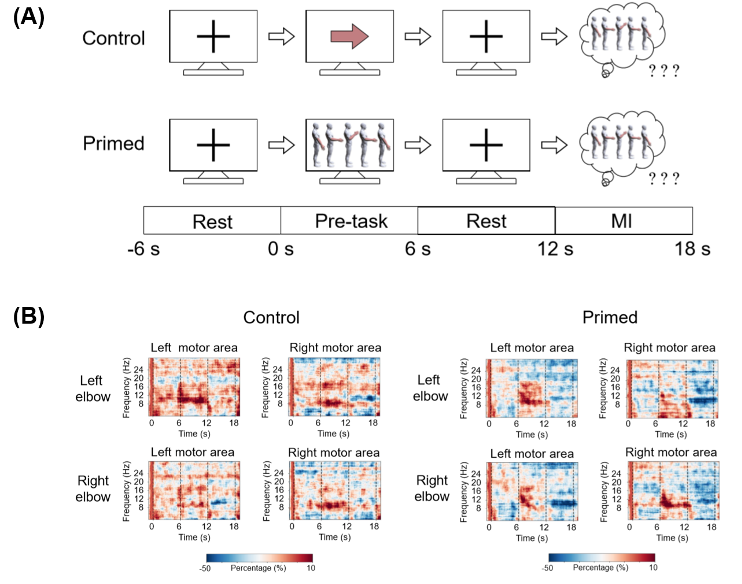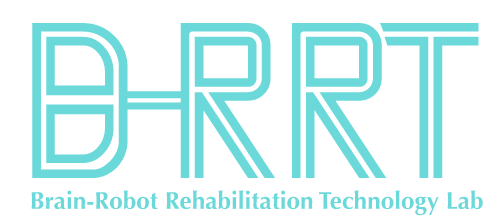Our undergraduate students Ziqi Sun and Yishu Li conducted a study on short-term priming effects under the guidance of our PH. D. candidate Yichuan Jiang. This work was accepted to be published in IEEE Transactions on Cognitive and Developmental Systems (IF = 3.379).
Motor priming is a type of implicit learning wherein a prior stimulus promotes the subsequent motor training. The neural theory underlying motor priming is that the motor cortex, which a prior task has primed, is more responsive to the following motor training. Recent translational and clinical studies revealed that setting motor priming prior to main intervention can facilitate neural plasticity and motor learning. However, existing priming strategies generally take dozens of minutes, leading to reduced treatment time and rehabilitation prescription flexibility. Priming individual training trial with a short-term (a few seconds) task may be a promising alternative.

The current study focused on investigating short-term priming effects via an electroencephalogram-gram (EEG) study of action observation (AO) on motor imagery (MI). Six healthy adults were recruited to perform MI of left or right elbow flexion-extension primed by AO of the same motion. The control condition replaced AO priming with directional arrows indicating different elbows. We employed the event-related (de-) synchronization (ERDS) of µ band (8-13 Hz) power and the classification accuracy of MI to evaluate short-term priming effects. The obtained results shown that both ERD intensity and classification accuracy of AO-primed MI was higher than those of arrow-guided MI, supporting short-interval priming as a feasible adjuvant technique to boost the effect of main intervention.
Ziqi Sun, Yichuan Jiang, and Yishu Li, are co-first authors of this article. Mingming Zhang, assistant professor of Southern University of Science and Technology, is the corresponding author of this article. Southern University of Science and Technology is the first unit and communication unit.
